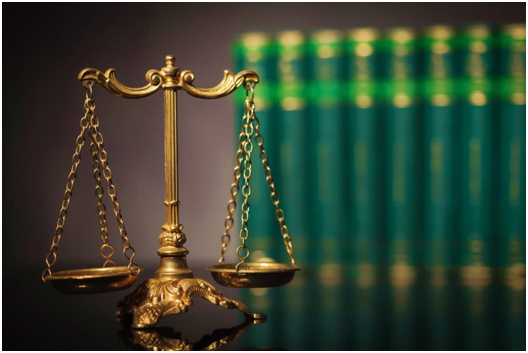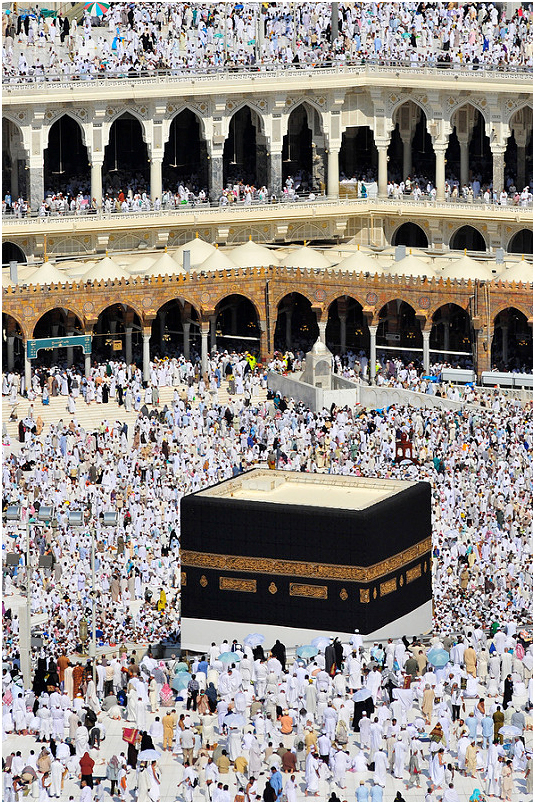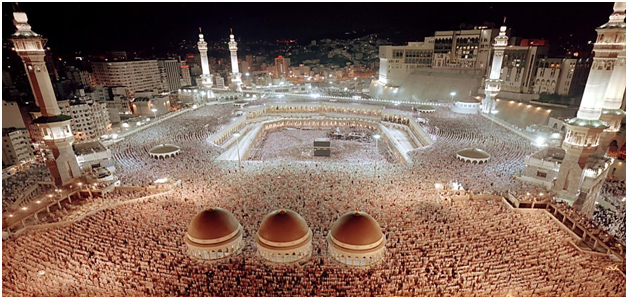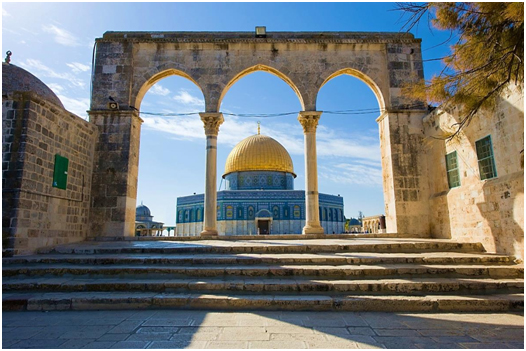What is Sharia Law?

The term “Sharia Law” is not really a Muslim one nor is the concept behind it. In the popular media it refers to certain punishments of Islamic law which are deemed harsh and unnecessary. There are even some in the U.S. who imagine Muslims are trying to abolish the Constitution and legal system of the country and establish “sharia” as the new law of the land.
However these paint a highly distorted picture of sharia and its practitioners.
The Arabic word, shariah, linguistically means a flowing water source or (path to one) that benefits people. Islamically, shariah denotes the guidance God has given to mankind in the form of explanations, prescriptions and commandments. So it essentially refers to the totality of the Islamic faith. (The “law” part of the term “sharia law” is generally not used by Muslims.)
Thus shariah is something that one lives by in his or her day-to-day life as a Muslim. Being friendly to one’s neighbors, showing devotion to one’s parents, helping the poor, treating animals with kindness, praying, fasting, not stealing, not hurting others, etc. are all examples of living the shariah.
The legal aspects of sharia address—in a general way—not only how an individual is to lead his or her personal life but also how a society is to be wisely structured and governed. Laws are thus prescribed for various aspects of social life such as business contracts, inheritance, marriage, etc.
Critics of Islam point to some aspects of the shariah’s penal code—for example,cutting the hand of a thief, stoning for adultery, and execution for rapists—as being too harsh.
But shariah and its few punishments are misunderstood. Here are ten things you didn’t know about the shariah:
- Only a tiny portion of the sharia’s specific laws are about punishments, however this is not how it is portrayed. This would be like setting aside the U.S.Constitution, Declaration of Independence, most of the U.S. legal system, and all of America’s cherished values and telling a man from Mars that the U.S. is just about lethal injection and the life-in-prison sentence!
- The sharia penal code primarily addresses Muslims in a society that is Islamic—not non-Muslims or a secular non-Muslim country. In a culture where people live the righteous, spiritual and holistic lifestyle that Islam teaches, acts subject to the shariah’s penal code would be uncommon anyway (and even less likely to result in a maximum sentence if convicted). The things that entice one to steal, commit adultery, rape, murder, etc. are preventatively eliminated in a shariah-based culture, so the occurrence of such sins is greatly minimized except among those who are absolutely adamant, criminal or brazen in their conduct.
- The few strong punishments of the sharia penal code are primarily meant to be psychological deterrents—not fervidly enforced. For example, one of the requirements for stoning of adulterers is to produce four credible witnesses who actually saw the male organ completely enter the female’s. This alone is almost impossible. What makes it even less likely to get four witnesses(or even one) is that the shariah makes it illegal to spy on people in their homes—even if it is well known that such sins are being committed at a particular residence.The government too is banned from investigating people’s domestic privacy for any reason except imminent danger to public safety. Thus for adulterers to actually get themselves stoned, they would have to flagrantly do the act out in the open.
So sins done in private are not subject to legal punishment. The shariahsimply tries to scare people away from doing such things publically.
- A thief’s hand may be cut if he repeats the act after being caught and warned two or three times. But the property stolen must be over a certain value. Stealing food to eat is not punished by amputation. So this punishment is primarily aimed at career criminals.
- Judges must go out of their way to actually find excuses for the defendant to not be punished or to be given a lighter sentence—even if they believe him or her to be guilty.The judge can actually play the role of the suspect’s attorney!He or she follows in the footsteps of the Prophet, searching for any sort of excuse for the defendant, including ignorance of the law or a multitude of doubts about the case which could result in acquittal or a lighter sentence.Thus, the sharia punishments are not frequently carried out in a true Islamic society. For instance, the Ottoman Empire—one of the largest in history, covering three continents and countless nationalities—only implemented stoning for adultery once in 500 years!
- If a person faces the death penalty for murder, the family of the victim decides whether to allow the execution or to forgive and accept monetary compensation instead. Islam encourages forgiveness and a shariah-inspired society itself serves as rehab for the criminal.
- Honor killings are not part of the shariah.
- There are no Muslim countries where shariah is the law of the land. Most have only elements of the shariah mixed with post-colonial and contemporary secular Western laws. This makes it unfair to judge the shariah and the Islamic legal system it inspired with random news reports about stonings, honor killings and the like.
- The claim that Muslims are trying to impose “sharia law” on America is ridiculous because, as mentioned above, the shariah is for Muslims in an Islamic The U.S. is predominantly non-Muslim and obviously not an Islamic society. Many American Muslims may indeed want “sharia” consideration for their holidays, daily prayers at work, rules of inheritance, etc. But this would be within the existing legal framework.
- The shariah instructs Muslims to obey whatever the laws of their land are. It doesn’t matter if the society has a non-Islamic legal system. The only exception to this is if a law compels a Muslim to disobey the shariah. But in most societies—especially where there is freedom of religion—this is not an issue.











